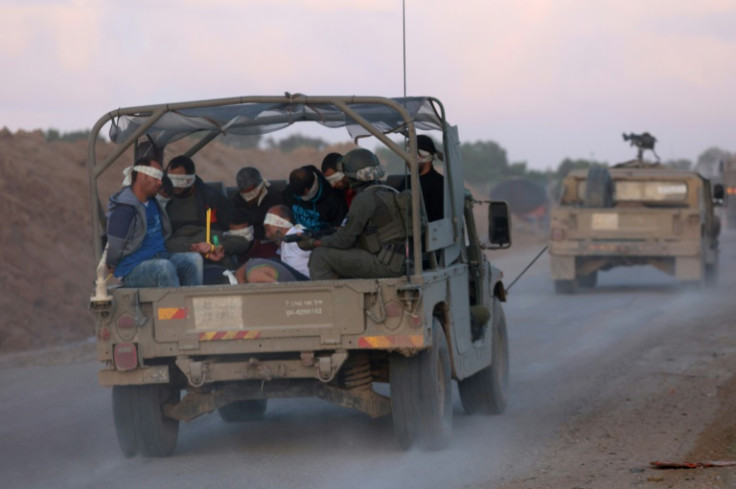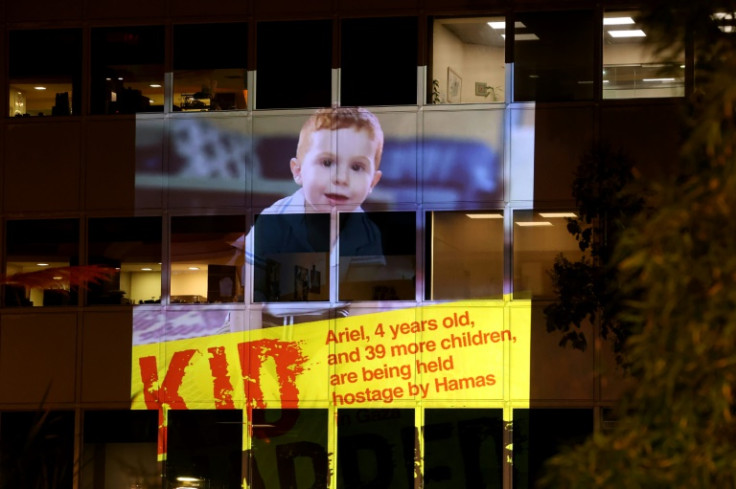Israel and Hamas Agree to 'Truce' That Will Free At Least 200 Hostages
The agreement of a temporary ceasefire has been facilitated by Qatari mediators and will see at least 200 hostages freed by both Hamas and Israel.

According to Ezzat el-Reshiq, a member of Hamas' Politburo and part of its negotiating team, talks of a 'truce agreement' between Hamas and Israel, have been ongoing for weeks.
The discussions of a potential ceasefire, that would see captives released from both Israel and Gaza, have been facilitated by Qatari mediators.
For years, Qatar has presented itself as the mediators of the Middle East, and it has been active in advocating for deals in Ukraine, Lebanon, Sudan, Iran, Afghanistan and Gaza – particularly the political wing of Hamas.
Yesterday, a statement published by Ismail Haniyeh's office, the leader of the proscribed terrorist group that has governed Gaza since 2007, said that Hamas officials are "approaching a truce agreement with Israel".
After the conversations over a Qatar-mediated deal continued until the early hours of this morning, Wednesday 22 November, both sides have agreed to a temporary ceasefire – lasting just five days.
As part of the agreement, the temporary pause in the war will see the release of around 50 women and children, who have been held captive in Gaza since Hamas' unprecedented massacre of Israeli civilians on October 7.
In exchange for the freeing of Israeli hostages, Israel will release a large number of Palestinians, at least 150, who have been held in Israeli jails.
In a statement published by Israeli Prime Minister Benjamin Netanyahu's office, Israel reported that the five-day ceasefire could be extended, as long as more hostages were going to be freed.
The 50 Israeli hostages are expected to be released at a rate of 10 per day, according to Netanyahu's statement.
Israel's Justice Ministry later published a list that contained the names of 300 Palestinian prisoners who could be freed if the ceasefire agreement was extended.

For almost 7 weeks of conflict, more than 240 Israeli's have remained in Hamas captivity after they were kidnapped from their homes during an on-the-ground massacre of civilians - which left around 1,200 people dead.
The number of hostages includes 39 children and infants as young as 10 months old.
The death of Noa Marciano, a 19-year-old reservist in the IDF who was taken last month, was revealed in a video sent by Hamas militants.
After identifying herself to the camera, the video, which was sent to her family members, cut to images of her deceased body being displayed.
According to sources close to the Israeli authorities, as the deal was being discussed, there were heated remarks made between ministers of Netanyahu's right-wing government.
An influx of aid into the Gaza Strip has also been made an essential factor of the 'truce agreement' after more than 14,000 Palestinian civilians have been killed in the Israeli Defence Force's (IDF) bombardment of the besieged enclave – according to the Hamas-run Health Ministry in Gaza.
Amongst the Palestinian victims that have been killed in airstrikes, Gaza's Health Ministry also reported that at least 5,500 children have died – including eight premature babies.
Tor Wennesland, the UN Special Coordinator for the Middle East Peace Process, called the truce deal a "step in the right direction".
Welcoming the deal, Wennesland added: "This pause must be used to its fullest extent to facilitate the release of hostages and alleviate the dire needs of Palestinians in Gaza."
"This is an important step in the right direction, but much more needs to be done," he urged.
The Minister of State at the Qatari Foreign Ministry and the Chief Negotiator in Ceasefire Talks for Qatar, Mohammed Al-Khulaifi, said that the temporary truce meant that there would be "no attack whatsoever. No military movements, no expansion, nothing".
Al-Khulaifi added that he hopes the deal "will be a seed to a bigger agreement and a permanent cease of fire. And that's our intention".
© Copyright IBTimes 2025. All rights reserved.






















